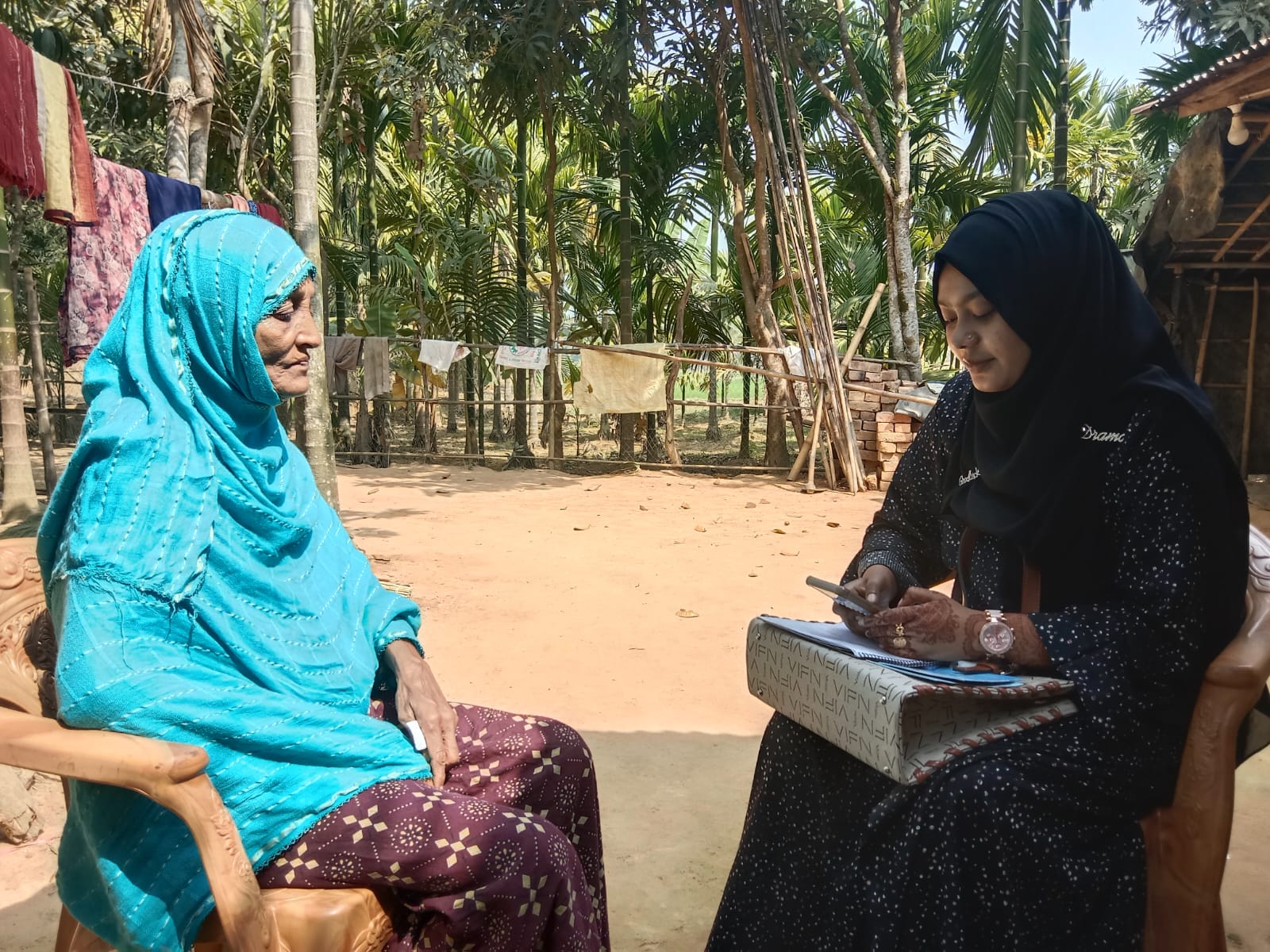Women’s Transformative Leadership in Sustainable Livelihood and Resilience: An Impact Study on Rohingya and Host Communities in Bangladesh
Client: Oxfam in Bangladesh
Location: Host Communities and Rohingya Camp Area, Cox’s Bazar, Bangladesh
Duration: 1 month (February 2024)
Overview:
This impact study evaluated Oxfam’s “Means to Lead” project, which aimed to empower women and girls from Rohingya and host communities in Cox’s Bazar. Since its inception in 2017, the project has focused on addressing gender disparities, fostering leadership skills, and supporting sustainable livelihoods. Through Multi-Purpose Women’s Centers (MPWCs) and Women’s Spaces, the initiative provided platforms for skill development, advocacy, and resource access. The study examined the project’s contribution to gender equality, women’s economic independence, and community resilience, offering valuable insights to enhance future interventions.
Key Objectives:
- Assess the project’s impact on women’s leadership skills, sustainable livelihoods, and resilience.
- Identify enablers and barriers to women’s empowerment and gender equality in crisis-affected communities.
- Provide actionable recommendations for improving project outcomes.
Services Delivered:
- Study Design and Planning:
- Developed a mixed-methods research framework incorporating qualitative and quantitative approaches.
- Prepared an inception report detailing objectives, methodologies, and strategies.
- Data Collection:
- Conducted structured surveys with 420 women participants from Rohingya and host communities.
- Facilitated qualitative data collection through:
- 6 Focus Group Discussions (FGDs) with women beneficiaries and trainers.
- 5 Key Informant Interviews (KIIs) with community leaders and government officials.
- Analysis and Reporting:
- Analyzed quantitative data using Stata 17.0 to uncover trends in leadership, resilience, and livelihood outcomes.
- Conducted thematic analysis of qualitative data to identify challenges and success factors.
- Compared pre- and post-intervention data to measure the project’s impact.
- Stakeholder Engagement:
- Worked closely with project staff and local partners to ensure alignment with study objectives.
- Organized stakeholder feedback sessions to validate findings and gather input for future planning.
Key Deliverables:
- Comprehensive impact study report highlighting the effectiveness of the project in enhancing women’s empowerment, leadership, and resilience.
- Recommendations for improving project design, focusing on gender equality, socio-economic resilience, and sustainable livelihoods.
Impact:
The study provided critical insights into the transformative impact of Oxfam’s “Means to Lead” project, showcasing its role in advancing gender justice, building community resilience, and empowering women in crisis-affected areas. The findings and recommendations serve as a foundation for scaling up impactful interventions and advocating for gender-inclusive development strategies.
Contact Person:
Md Mostofa Ali
Program Coordinator, Oxfam in Bangladesh
TAHERA KUTHIR, House No. 409, Road No. 05 (East), Block: C, Uttaran Grihayan Society Somiti Ltd., Bypass Road, Zhilongjha, Cox’s Bazar, Bangladesh
Phone: +8801730022321
Email: mdali@oxfam.org.uk

Project Details
- Assignment type: Impact Study
- Client: Oxfam in Bangladesh
- Location: Host Communities and Rohingya Camp Area
- Year Of Complited: 2024
- Lead Researcher: Md. Maksud-Ul Hasan
- Project Manager: Md. Zahirul Islam

